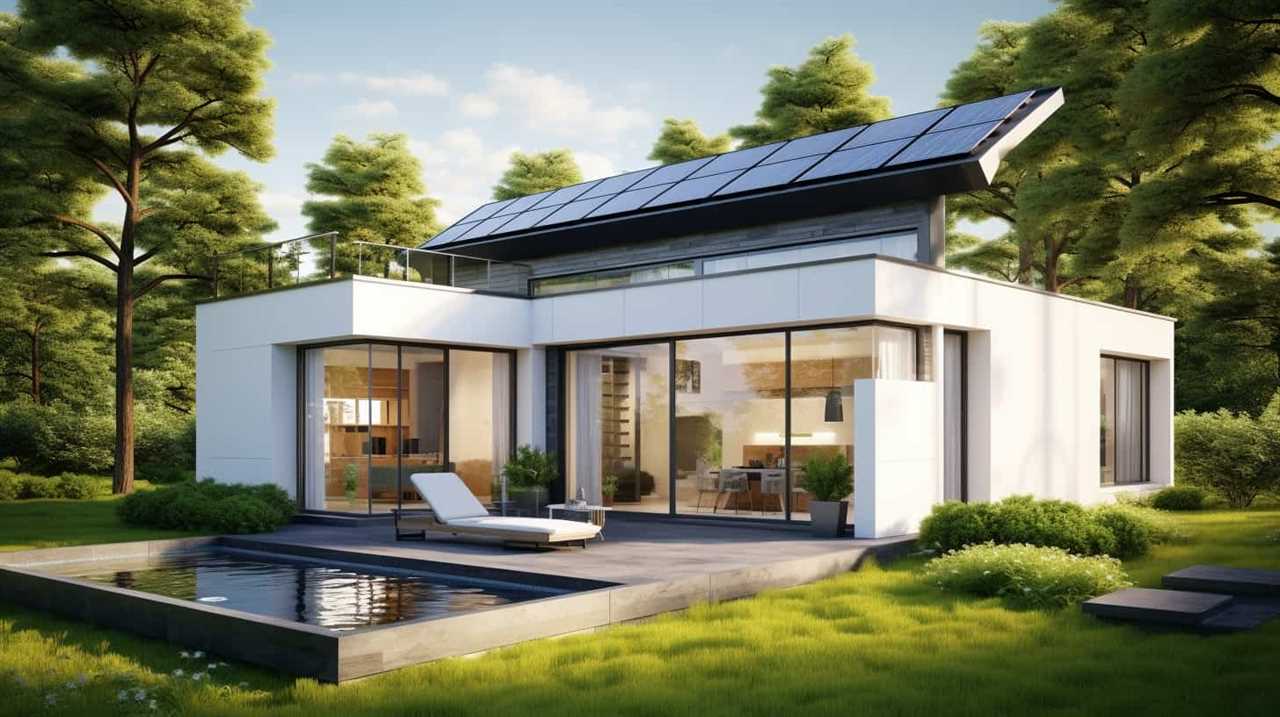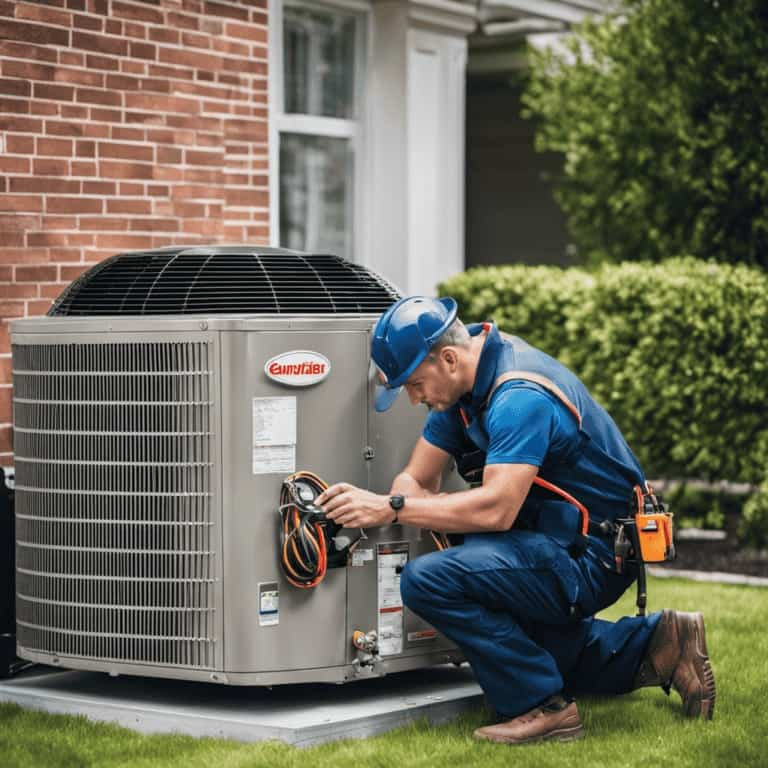Are you fed up with expensive electricity bills? We have the answer for you!
In our article, we will share tips on cutting costs with heat pump efficiency. By maximizing energy savings and understanding energy efficiency ratings, you can optimize your heat pump’s performance and minimize expenses.
Get ready to enjoy the freedom of lower bills with our practical and cost-effective tips. Let’s dive in and start saving!
Key Takeaways
- Ensure proper insulation in your home to minimize heat loss.
- Set the thermostat to the most energy-efficient temperature.
- Keep the heat pump filters clean to maintain airflow.
- Use programmable thermostats to optimize energy usage.
The Impact of Heat Pump Efficiency on Electricity Bills
When it comes to heat pump efficiency, we can see a significant impact on our electricity bills. The effect of weather on heat pump efficiency is crucial to understand.
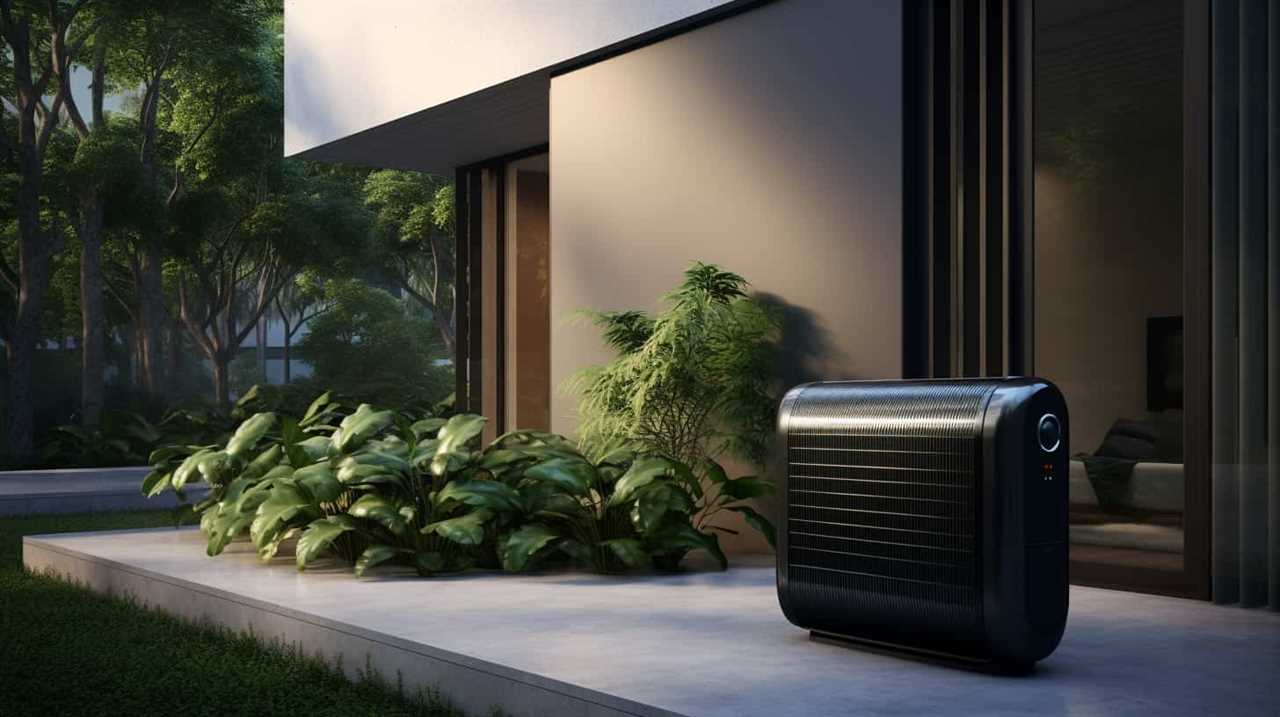
In colder climates, heat pumps have to work harder to extract heat from the outside air, resulting in higher energy consumption and increased electricity bills. On the other hand, in warmer climates, heat pumps have an easier time transferring heat, leading to lower energy usage and reduced costs.
Regular maintenance is also vital for maintaining heat pump efficiency. By scheduling routine inspections and cleaning of filters, coils, and ducts, we can ensure that our heat pumps are operating at their optimal level. This not only enhances their efficiency but also prolongs their lifespan, saving us money in the long run.
Taking these steps can have a significant impact on reducing our electricity bills and ensuring the efficiency of our heat pumps.
Maximizing Energy Savings With Heat Pump Efficiency
To achieve maximum energy savings with heat pump efficiency, we should focus on insulation and sealing to prevent heat loss or infiltration. By improving the insulation of our homes, we can reduce the amount of energy needed to heat or cool our living spaces. Properly sealing any gaps or cracks in walls, windows, and doors will also prevent hot or cold air from entering or escaping, thus significantly reducing energy consumption.

In addition to insulation and sealing, regular maintenance of the heat pump is essential for improving its performance and reducing energy consumption. This includes cleaning or replacing air filters, ensuring proper airflow, and scheduling professional tune-ups to optimize its efficiency.
Furthermore, it’s important to set the thermostat at an appropriate temperature and avoid unnecessary temperature fluctuations. By keeping the temperature consistent, the heat pump can operate more efficiently and consume less energy.
Key Factors to Consider for Cost-Effective Heat Pump Operation
One of the key factors we should consider for cost-effective heat pump operation is proper sizing. Ensuring that your heat pump is appropriately sized for your space is crucial in achieving optimal energy efficiency and reducing operating costs. A heat pump that is too small will struggle to heat or cool your home effectively, leading to increased energy consumption and higher utility bills. On the other hand, a heat pump that is too large will cycle on and off frequently, wasting energy and causing unnecessary wear and tear on the system. To determine the correct size for your heat pump, it is essential to consider factors such as the square footage of your home, insulation levels, and climate conditions. Consulting with a professional HVAC technician is recommended to ensure accurate sizing.
| Key Factors for Cost-Effective Heat Pump Operation |
|---|
| Proper sizing |
| Regular maintenance |
| Efficient use of programmable thermostats |
| Airflow optimization |
Understanding Energy Efficiency Ratings for Heat Pumps
The Energy Efficiency Ratings (EER) and Seasonal Energy Efficiency Ratios (SEER) are important metrics to understand when evaluating the efficiency of heat pumps. These ratings provide valuable information about how much energy a heat pump consumes and how effectively it converts that energy into heating or cooling.
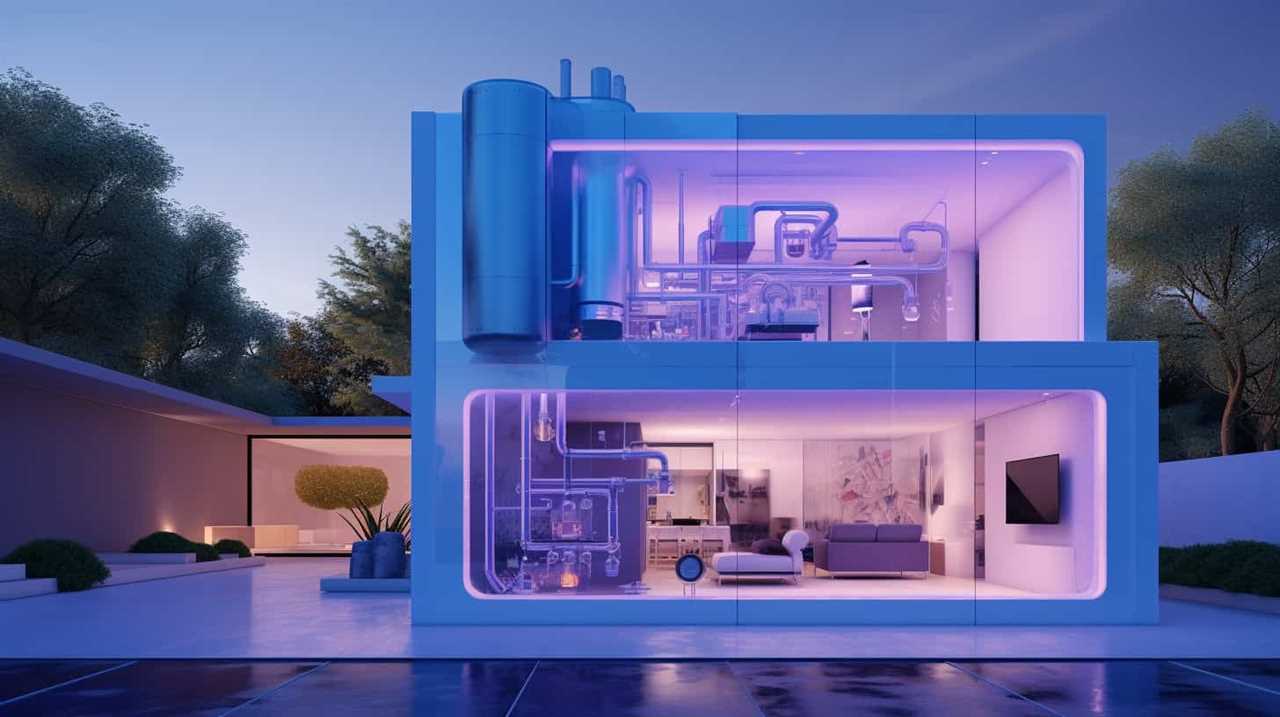
Here are four key points to consider when looking at heat pump efficiency ratings:
-
Higher EER and SEER ratings indicate greater energy efficiency, which can lead to significant energy savings.
-
Energy Star-certified heat pumps typically have higher EER and SEER ratings, ensuring optimal efficiency.
-
Proper installation and regular maintenance can help maximize the efficiency of your heat pump.
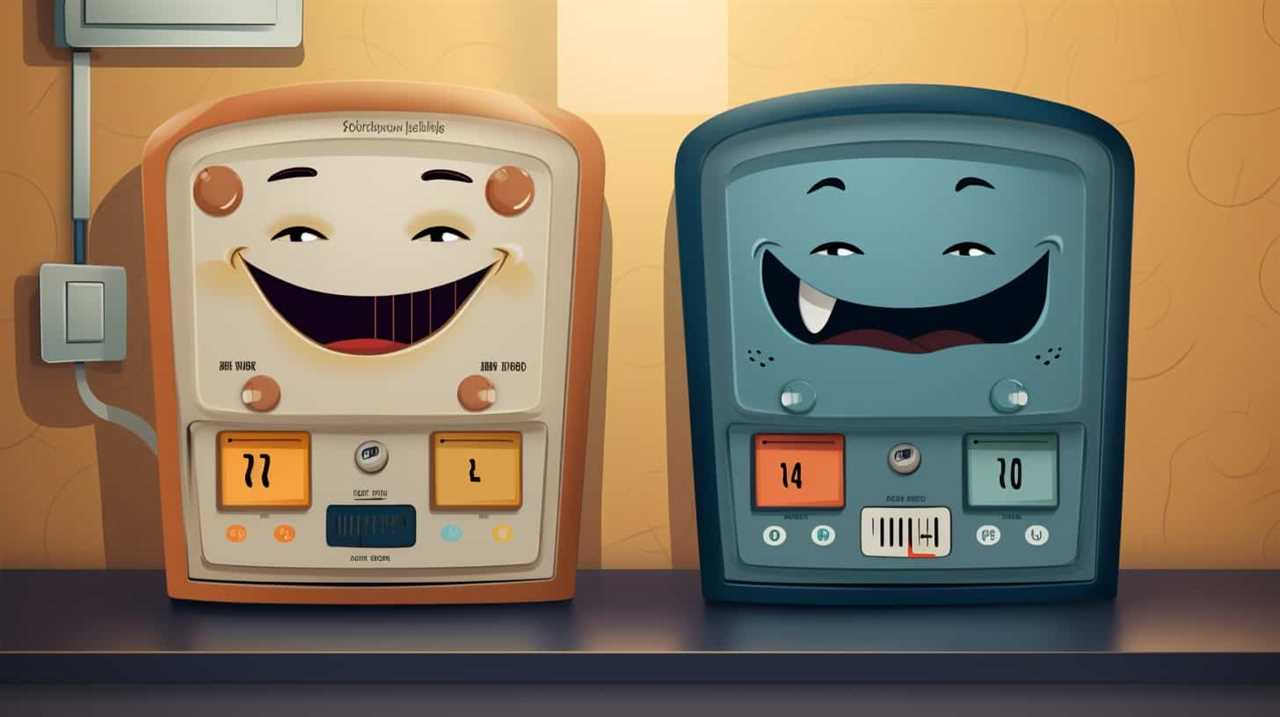
-
Upgrading to a more efficient heat pump can result in long-term energy savings and a smaller carbon footprint.
Practical Tips for Optimizing Heat Pump Efficiency and Minimizing Expenses
With proper maintenance and regular filter cleaning, we can optimize our heat pump efficiency and minimize our expenses.
In addition to these essential tasks, there are a few practical tips that can further enhance the performance of our heat pump system.
One such tip is improving insulation in our homes. By sealing air leaks and adding insulation to walls, floors, and attics, we can reduce heat loss and improve the overall efficiency of our heat pump.
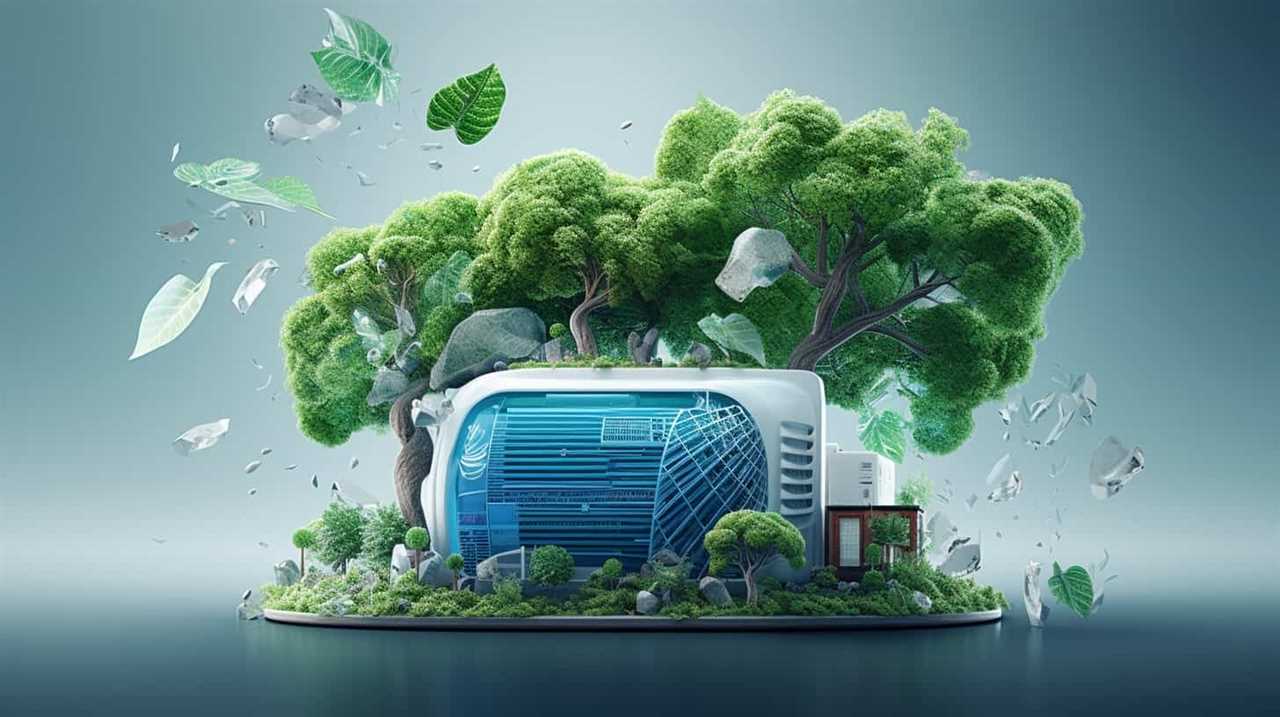
Another important consideration is setting the thermostat properly. By setting it at an appropriate temperature, we can avoid unnecessary energy consumption and save on our heating and cooling costs.
Frequently Asked Questions
What Are the Different Types of Heat Pumps Available on the Market?
There are different types of heat pumps available on the market. Each type has its pros and cons. It’s important to consider factors like efficiency, cost, and suitability for your specific needs.
Is It Possible to Retrofit an Existing Heating System With a Heat Pump?
Yes, it’s possible to retrofit an existing heating system with a heat pump. However, there are retrofitting challenges and cost effectiveness analyses that need to be considered.
Are There Any Government Incentives or Rebates Available for Purchasing a Heat Pump?
Yes, there are government incentives and heat pump rebates available for purchasing a heat pump. These programs aim to provide financial assistance to individuals and businesses looking to improve energy efficiency and reduce their carbon footprint.
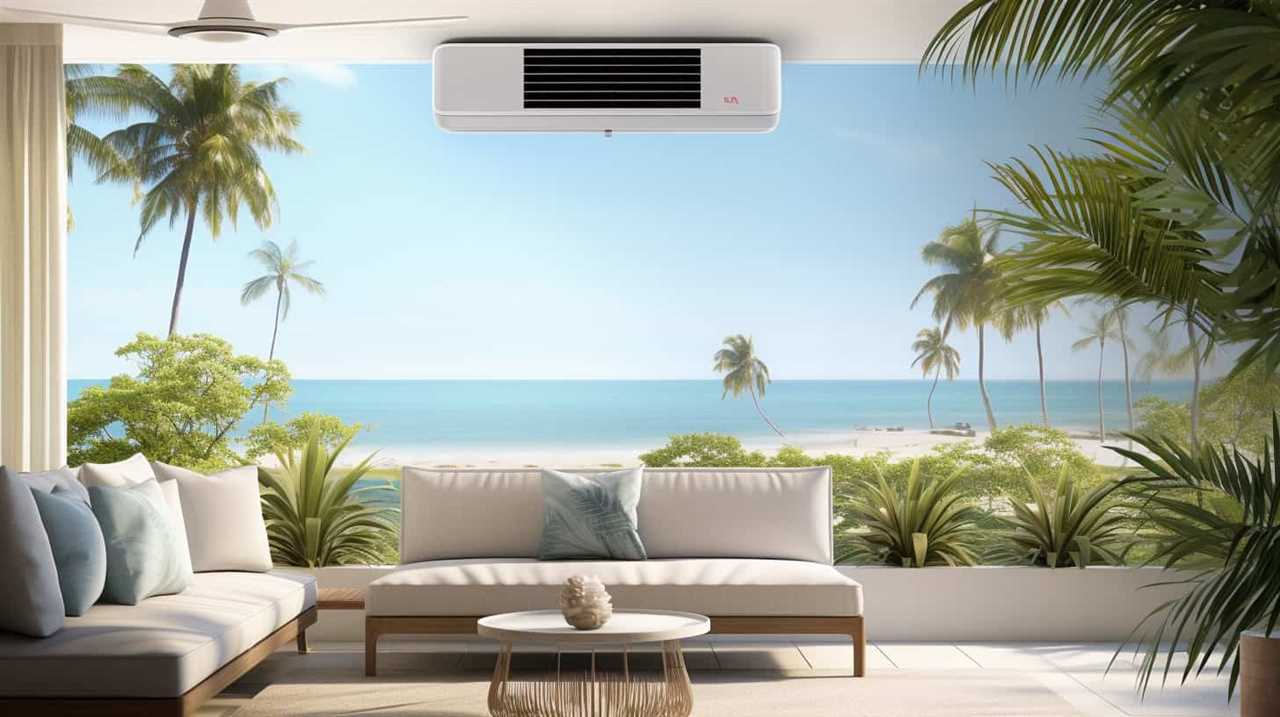
How Often Should a Heat Pump Be Serviced and Maintained?
We should service and maintain our heat pump regularly to extend its lifespan. We can follow these tips for DIY maintenance: clean or change the air filters, check and clean the outdoor unit, and schedule professional maintenance annually.
Can a Heat Pump Be Used for Both Heating and Cooling a Home?
Yes, a heat pump can be used for both heating and cooling a home. What are the advantages of using a heat pump for heating and cooling? Let’s explore heat pump applications.
Conclusion
In conclusion, maximizing heat pump efficiency is essential for cutting costs and reducing electricity bills. By understanding energy efficiency ratings and implementing practical tips, such as proper maintenance and insulation, homeowners can optimize their heat pump’s performance and minimize expenses.
Remember, ‘A penny saved is a penny earned,’ so investing in energy-saving measures today can lead to long-term savings and a more sustainable future.
